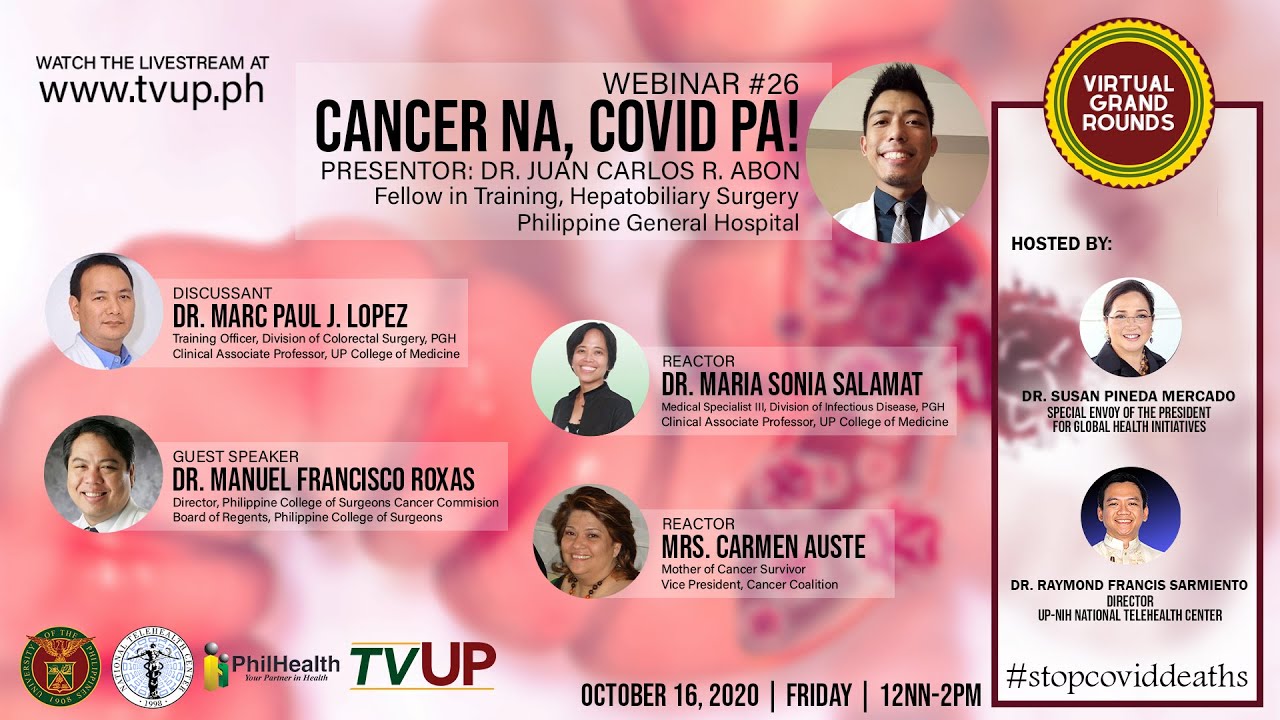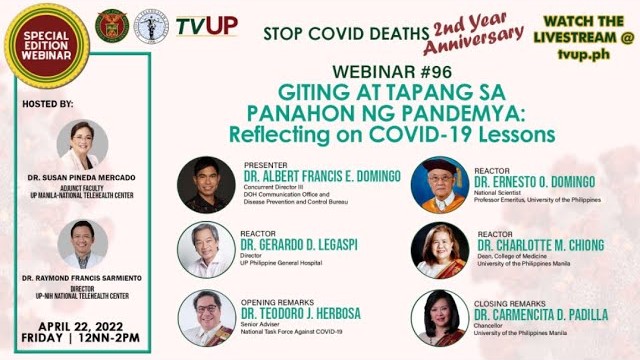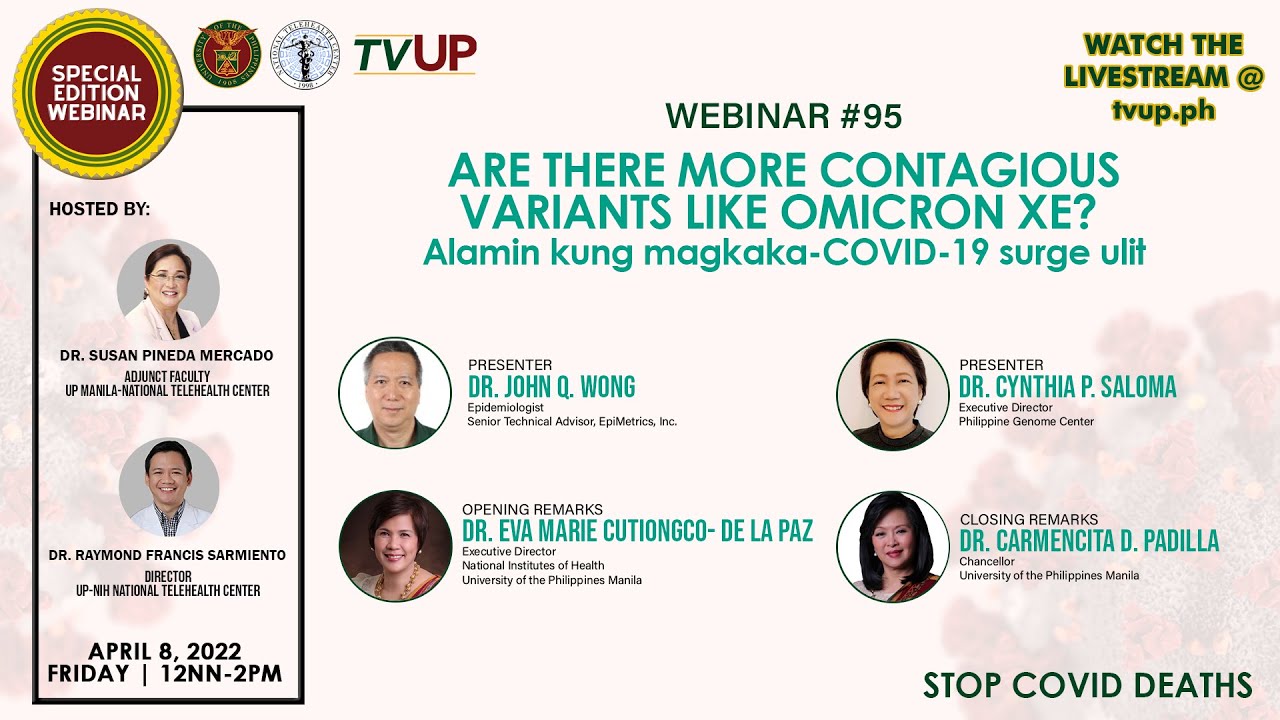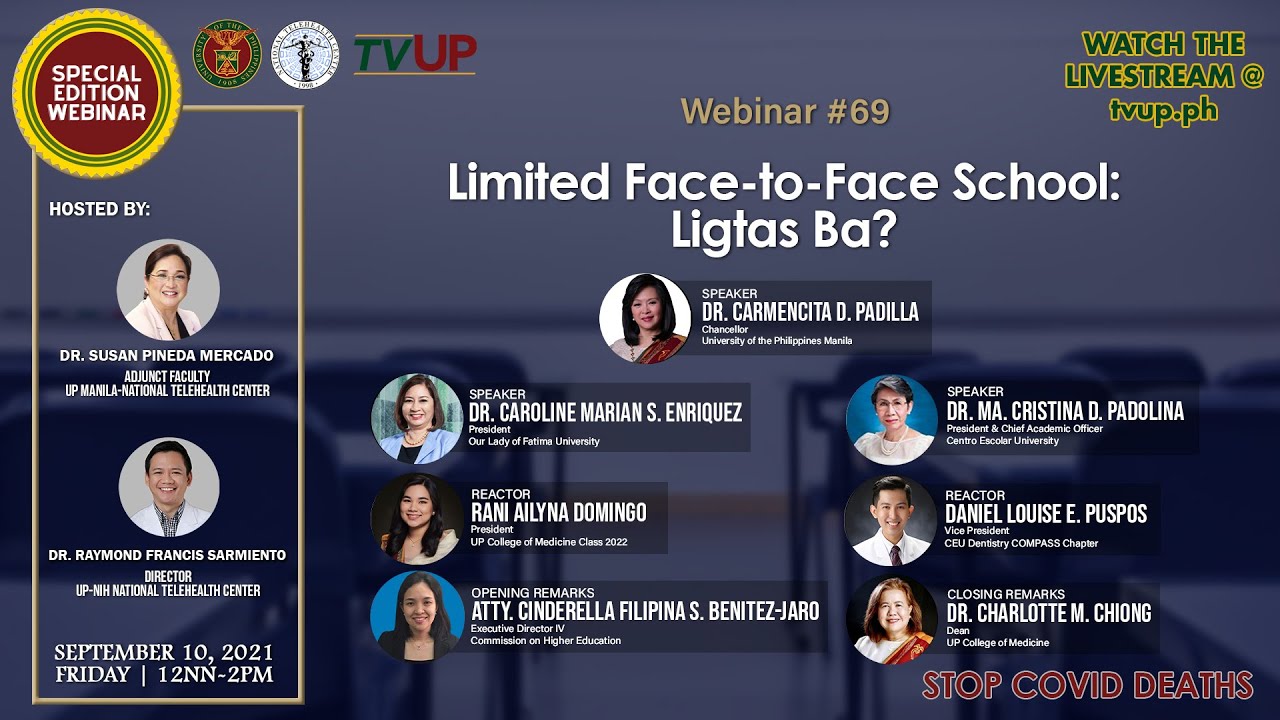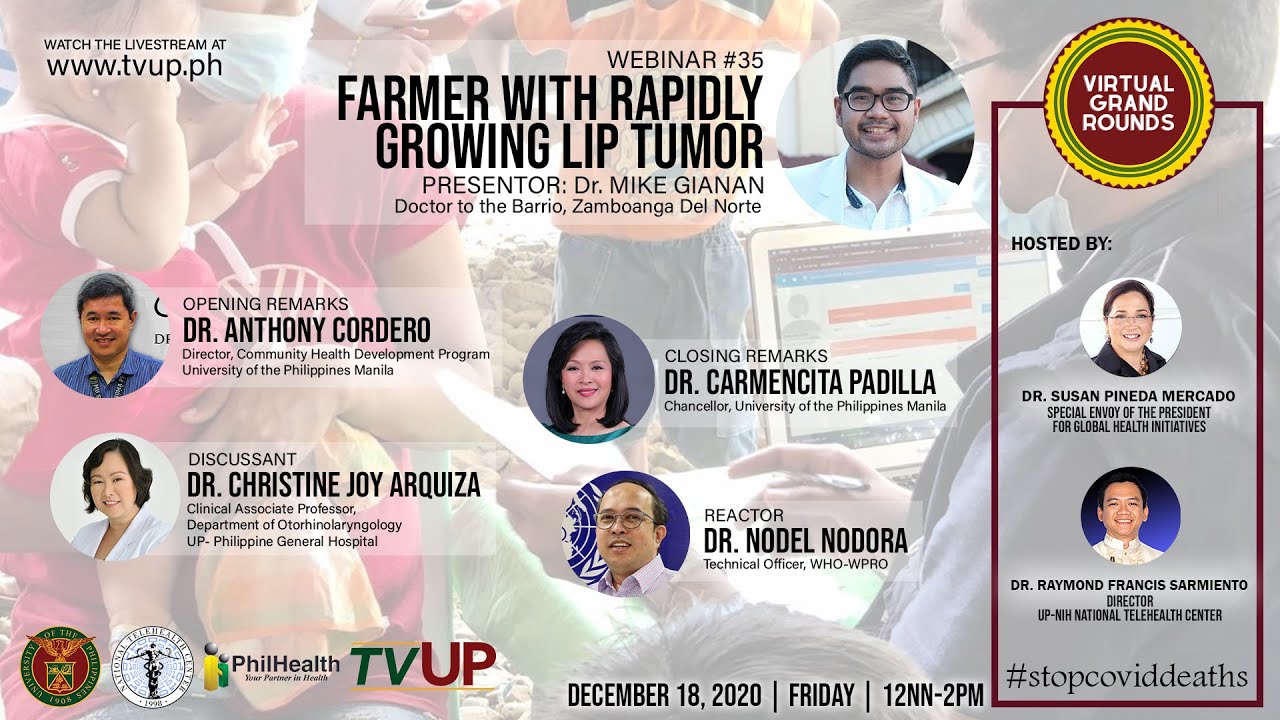Webinar #26 | “Cancer na, COVID pa!”
Webinar #26 | “Cancer na, COVID pa!”
The University of the Philippines
in partnership with
Philippine Health Insurance Corporation (PhilHealth) and
UP Manila NIH National Telehealth Center
in cooperation with
UP Manila College of Medicine and UP Philippine General Hospital
would like to invite you to join the Fight Against COVID-19!
The Webinar Series “STOP COVID DEATHS: VIRTUAL GRAND ROUNDS” – the very first Online Medical Grand Rounds in the Philippines
is scheduled EVERY FRIDAY from 12nn to 2pm.
Webinar #26: “Cancer na, COVID pa!”
October 16, 2020 (Friday) 12nn
Presentor:
Dr. Juan Carlos R. Abon
Fellow in Training, Hepatobiliary Surgery
Philippine General Hospital
Discussant: Dr. Marc Paul J. Lopez
Training Officer, Division of Colorectal Surgery, Philippine General Hospital
Clinical Associate Professor, UP College of Medicine
Reactors:
Dr. Maria Sonia Salamat
Medical Specialist III, Division of Infectious Diseases, Philippine General Hospital
Clinical Associate Professor, UP College of Medicine
Mrs. Carmen Auste
Mother of a Cancer Survivor
Vice President, Cancer Coalition
Guest Speaker:
Dr. Manuel Francisco Roxas
Director, Philippine College of Surgeons Cancer Commission
Board of Regents, Philippine College of Surgeons
Case Capsule: This is a case of a 61-year old widow, who was diagnosed with colon cancer and due to worsening of symptoms sought medical and surgical care in the midst of the lockdown. Through her course of treatment, she develops COVID-19.
Cancer of the colon is considered one of the top 5 types of cancer in the Philippines. Despite its frequency, there is good prognosis if the disease is diagnosed early. Early diagnosis can be achieved through colonoscopy, or occult fecal blood tests – particularly for those with a strong family history of this type of cancer. For those cases discovered at Stage 1, the 5-year survival rate can be as high as 92%. COVID-19 pushed many patients with cancer into severe hardship. For those with a diagnosis, like the patient in this case study – it meant delay in follow-up, scheduling of surgery and chemotherapy. On the other hand, it also caused fear, anxiety and frustration about the risks of seeking care in hospitals. Multiple burdens are foisted upon the patient: fear, anxiety, pain, progression of cancer, financial constraints.
